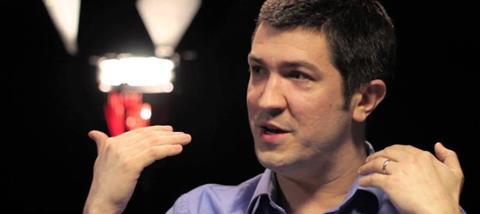
Gender is big news. Earlier this month, a Christian couple hit the headlines for removing their children from school after another boy wore a dress to class. Earlier this year, Transport for London pledged to stop using the term ‘ladies and gentlemen’ on its public announcement systems. Meanwhile in Sweden, ‘gender-neutral classrooms’ are in place with teachers being trained to avoid using terms such as ‘boys’ and ‘girls’.
All of this stands in stark contrast to 1950s society when gender differences were emphasised, women were seen as homemakers and men went to work. Very few people in the UK Church today want society to go back to the 50s. But evangelicals are also reluctant to embrace the growing trend towards 'gender neutrality' where any difference between the sexes is either downplayed or denied.
Gender roles have been hotly debated among evangelicals long before the transgender debate became more prevalent in the culture. Egalitarians have argued that being created equal, men and women should be able to serve in all areas of church leadership. Complementarians on the other hand have tended to argue that men and women are 'equal but different', having contrasting but complementary roles. The practical outworking of complementarianism often means that the roles of preaching and/or church leadership are given to men only in churches that hold to the doctrine.
But what if the above framing of the complementarian position is such an over-simplification, it’s in danger of being misleading? And what if, due to the intense and fiery nature of the debate around these issues, evangelicals are in danger of speaking past each other?
Theologian and author Andrew Wilson believes that key questions regarding gender and the Church tend to be worked out in the heat of the moment in a pastoral or polemical way: “Even the big books on the subject are often quite polarising. So I think there’s scope to treat this issue in a different way”.
Enter the THINK conference on ‘the future of complementarity’. This 3 day event in July next year aims to give “rigorous theological attention” to an often-misunderstood and multi-faceted debate and will feature a variety of contributors including Alastair Roberts and Hannah Anderson.
In titling the conference in this way, Andrew wants to draw a distinction between 'complementarianism' which tends to define the ways in which men and women should function within marriage and the Church and 'complementarity' – a "softer term" which many egalitarians also hold to, where difference between genders is acknowledged.
Andrew’s outworking of his belief in complementarity has changed over time: "I would have been in a position ten years ago when we did not have women on the preaching rota. And we do now – in both the churches I serve. And I would totally defend that on biblical grounds."
Andrew wants to use the conference to help people step back and look at the issues from a broader perspective: "The debate has mainly implied the whole discussion is about who does what in a local church. I think there’s a bigger question about anthropology, what it means to be made in the image of God."
He wants the debate to "start in the right order" with anthropology informing positions on difference, rather than the other way round.
Wilson is well known as a speaker within the Newfrontiers family of churches, who have always held a complementarian theology. Though their practice on a number of points seems to be changing, Wilson says it is the theological foundations that he hopes to explore in the conference. "Part of the point of having speakers from outside our immediate family is that they provoke us to look at things in new ways," he says.
"We need to unbundle some of these issues and look at them again. I don’t think I’m going to change my position on eldership, but to speak of complementarity is not the same as to speak of a particular alignment of all of those issues in a particular way."
The THINK theology conference will take place at Kings Church London from 3-5 July. Click here for more information



























